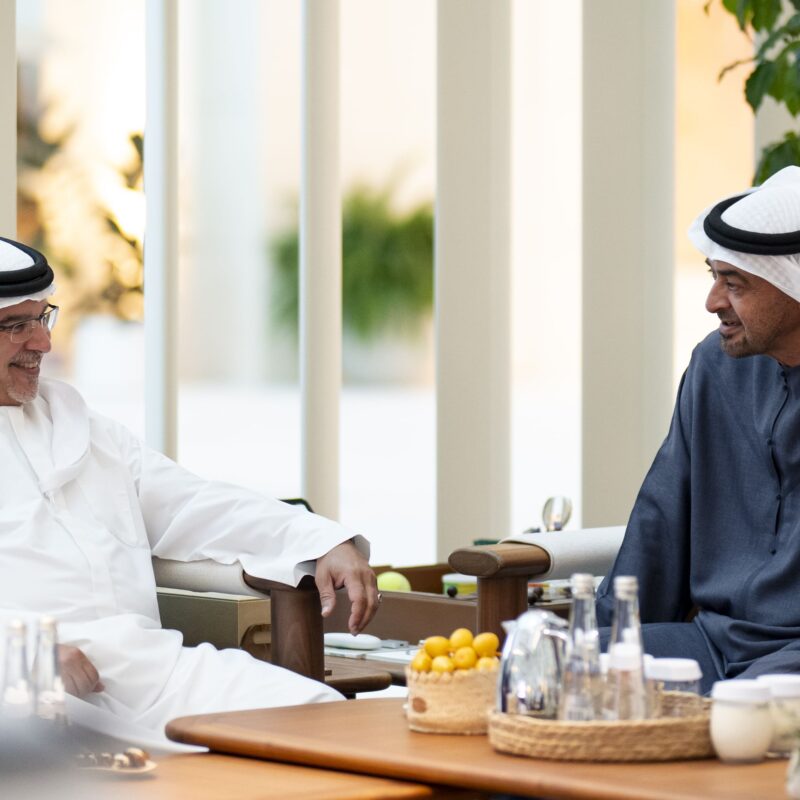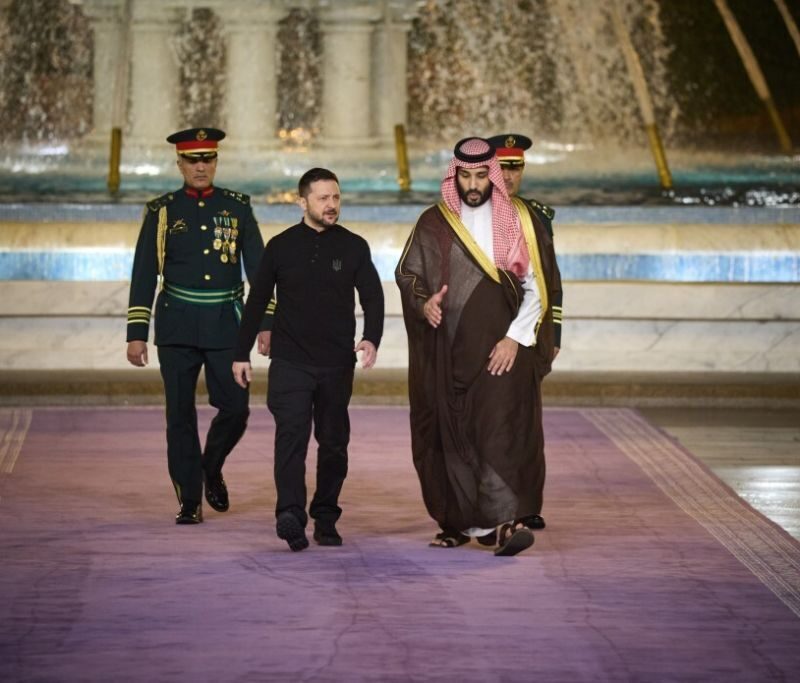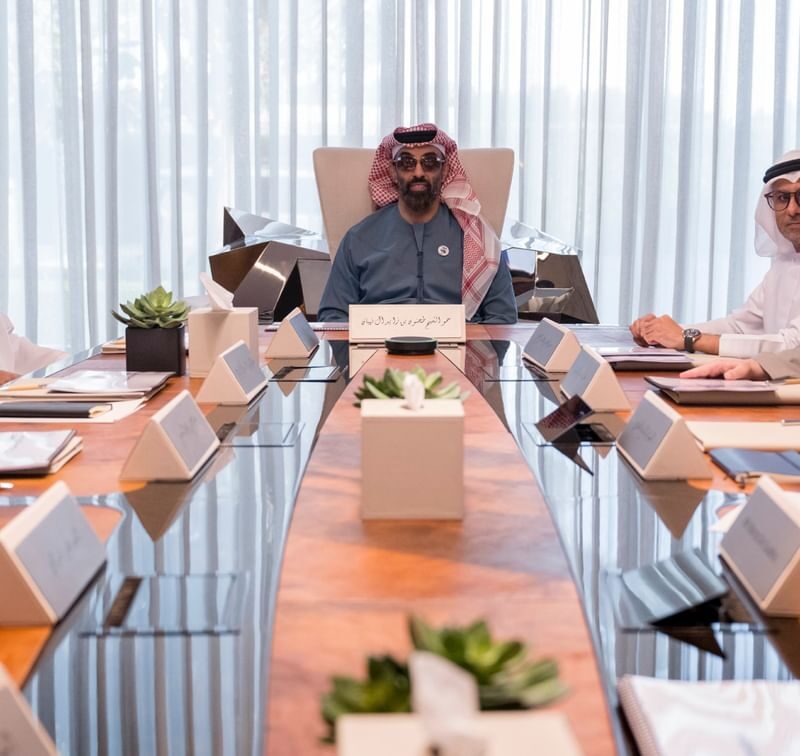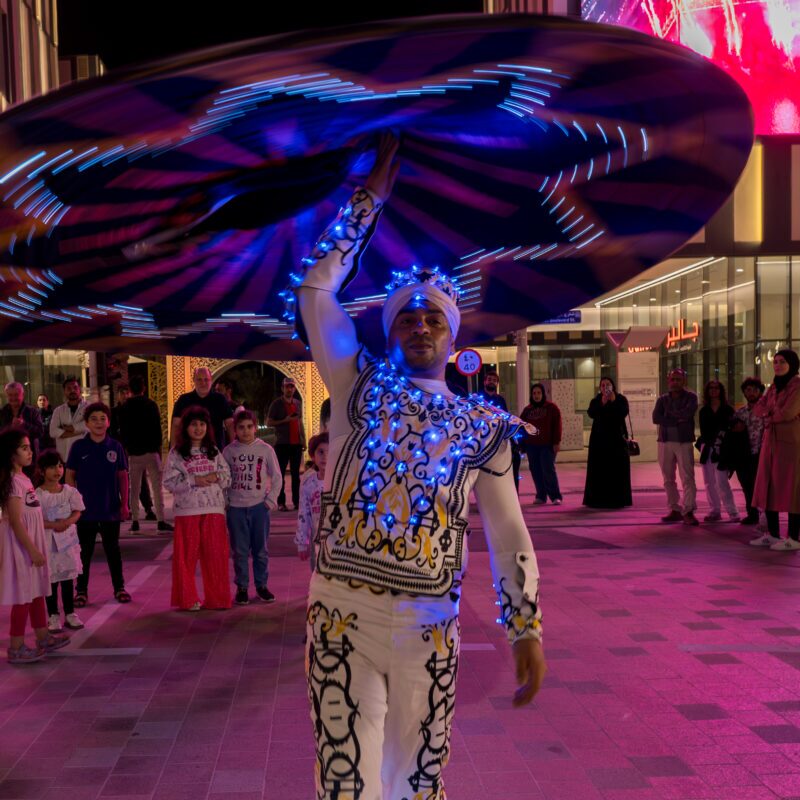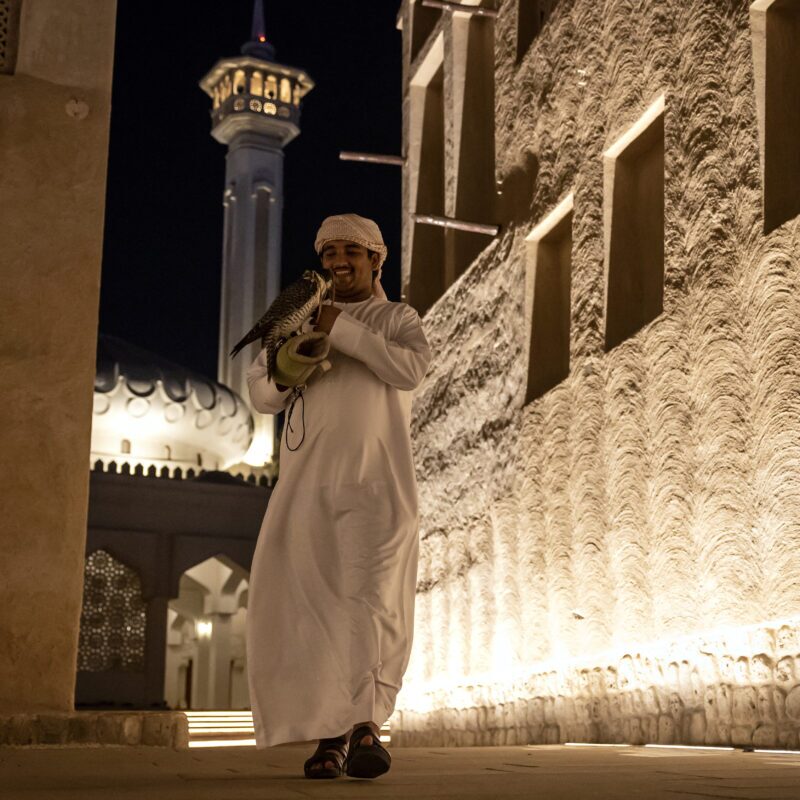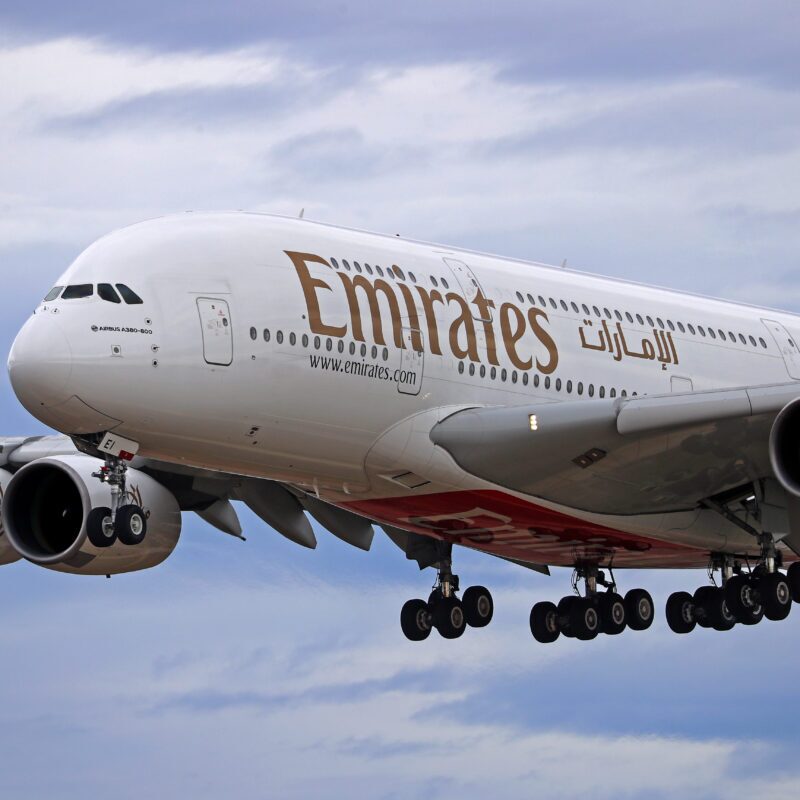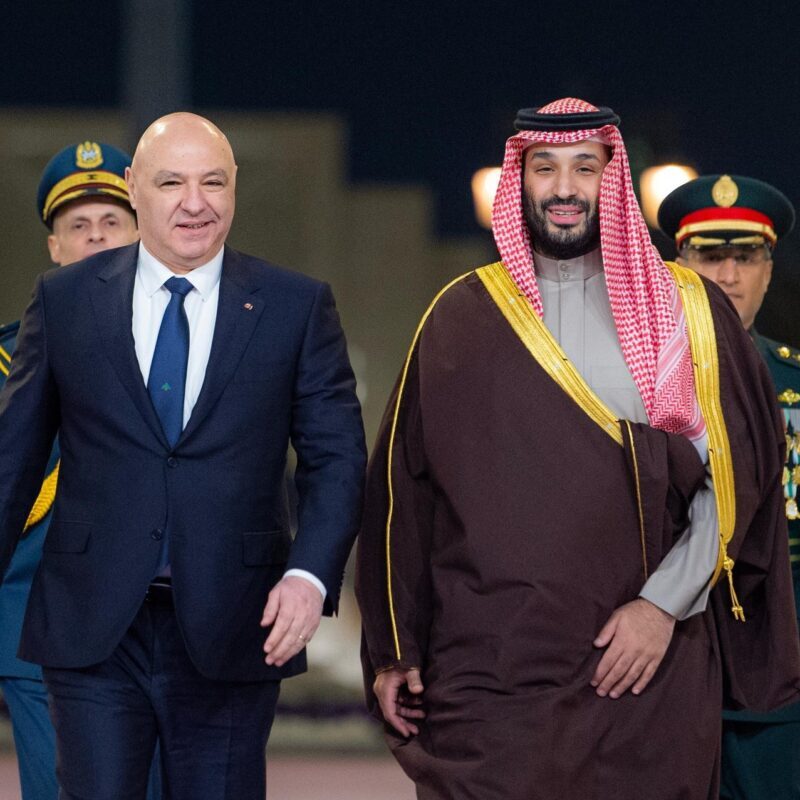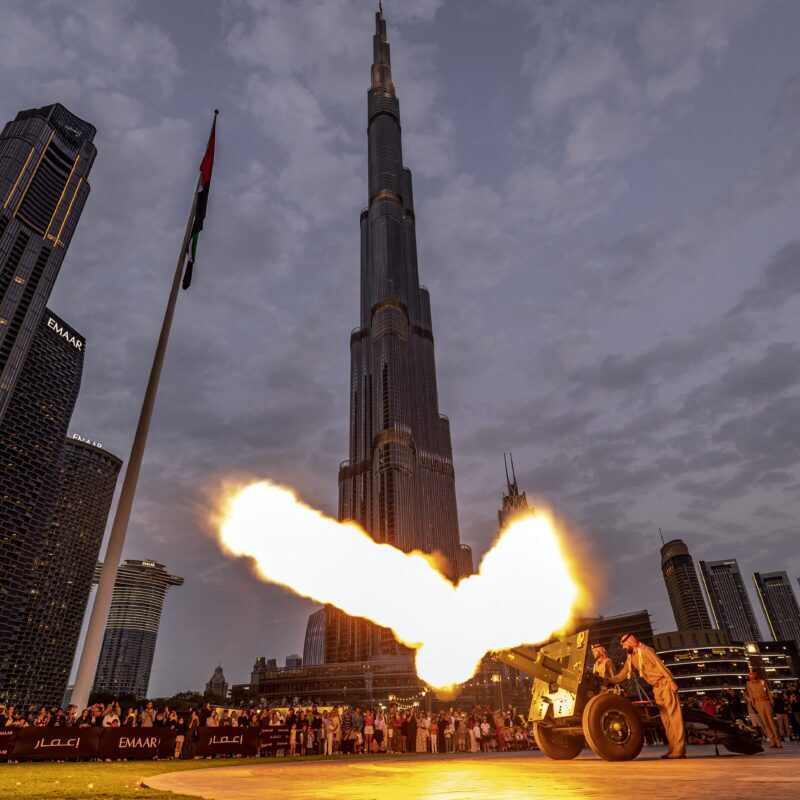The Weekly Circuit
👋 Good Monday morning in the Middle East!
Gulf nations are pursuing new investment opportunities in 2023, buoyed by last year’s record growth in sovereign wealth funds that was fueled by high oil prices. Government funds in Saudi Arabia, Qatar, the UAE and other Gulf Cooperation Council members invested some $89 billion last year, enabling them to diversify their economies and extend their influence globally, Bloomberg found. Finding themselves flush with money has made funds such as Abu Dhabi’s Mubadala more discerning and assertive about what to do with their cash. “We’re an active, not a passive, long-term investor,” Mubadala Deputy CEO Waleed Al Mokarrab told the news agency. “That means we have control of when to invest, when to monetize, and through board representation, when to be a voice for change.”
Mulling the future in the frosty Alpine heights of Davos last week, government ministers, bankers and investors from the Middle East who attended the World Economic Forum projected optimism while advising caution. “I have not seen a confluence of positive factors coming together at the same time in at least the last 30 years [such as] the political stability, [high] oil prices, the human capital that has been developed,” Sunil Kaushal, Standard & Chartered Bank’s chief executive for Africa and the Middle East, said at the conference.
In the realm of foreign assistance, Saudi Arabia plans to be more assertive with aid recipients in neighboring countries and prod economic reform. “We used to give direct grants and deposits without strings attached, and we are changing that,” Saudi Finance Minister Mohammed Al-Jadaan told a Davos panel.
Israel, where one tech startup after another has announced new waves of layoffs as global tech funding dries up, is focused on controlling inflation, Bank of Israel Governor Amir Yaron said. “One has to understand that if you want a stable economy, you’ve got to have stable prices and that involves raising interest rates,” Yaron told CNBC in Davos. “Raising interest rates involves pain, especially for those who have taken mortgages, but it’s pain today in order to avoid pain in the future.”
The chilly mountain temperatures provided an opportunity to offer a Middle East alternative to Swiss hot chocolate. Outside the UAE pavilion, Davos delegates lined up at a roadside cart to receive small free cups of a steaming beverage billed as “Emirati hot chocolate.” The brew consisted of ghawa, green unroasted coffee, flavored with cardamom, saffron and Swiss chocolate. It was the creation of chef Nawal Al Nuaimi, who took a break from the Paper Fig restaurant she runs in the emirate of Sharjah to brave the cold in the Swiss Alps. “We wanted to make a drink that is a perfect fusion of Emirati and Swiss culture,” she told The National.
Welcome to The Weekly Circuit, where we cover the Middle East through a business and cultural lens. Read on for the stories, deals and players at the top of the news. Please send comments and story tips to editor@circuit.news.
Spread the word! Invite your friends to sign up.👇
TOP GUN
Lockheed showcases F-35 Israel sales in face-off with Boeing
As tensions with Iran simmered last November, Israeli Air Force officers turned up at Nevatim Air Base in the Negev desert to greet the delivery of three F-35 stealth fighter jets. The message was clear: Israel is equipped with the most advanced aerospace technology that can attack multiple sites in Iran if it escalates its nuclear program. The aircraft delivery by Lockheed Martin, which increased the size of Israel’s F-35 fleet to 36 planes, was also a message to Boeing and other competitors that it will battle across global markets for dominance in military aircraft sales. The Bethesda, Md.-based aerospace company is the biggest weapons manufacturer in the world, and is strengthening links with Israeli defense contractors as it fights to maintain its stature in the Middle East, Yaakov Lappin reports for The Circuit.
Large footprint: Heading that effort is Joshua Shani, a retired brigadier general in the Israeli Air Force, who has been CEO for Lockheed Martin’s operations in Israel for 30 years. The company has engaged in over $1 billion of offset deals through manufacturing agreements with Haifa-based Elbit Systems, state-owned Israel Aerospace Industries and other Israeli firms. Elbit produces helmet-mounted displays for the F-35s that project information onto a pilot’s visor. IAI produces wing parts for both the F-35 and F-16 jets. “Lockheed Martin has a large footprint in Israel,” Shani, 77, said in an interview with The Circuit.
Laser cannon: Besides the fighter aircraft, Lockheed Martin is working with state-owned Rafael Advanced Defense Systems on a variant of Israel’s Iron Beam laser air-defense system for the U.S. market. Iron Beam is a 100-kilowatt air-defense laser cannon, developed by Rafael in cooperation with Elbit, and the Israeli Defense Ministry. The defense system shoots down rockets, mortars and unmanned aerial vehicles at far cheaper costs than missile interceptors. The system was displayed for visiting U.S. President Joe Biden at Ben Gurion International Airport in July by former Prime Minister Yair Lapid and former Defense Minister Benny Gantz. Just last week, it was reported that Israel and the U.S. are in initial talks for the purchase of 25 Boeing F-15 fighter jets.
Gulf sales: Lockheed Martin is active throughout the Gulf region, where it sells Hercules C-130 transport aircraft to Saudi Arabia and maintains a Center for Innovation and Security Solutions in the United Arab Emirates. The company is expected to begin delivering new F-16 jets to Bahrain in 2024. Meanwhile, U.S. Air Force pilots stationed in the region, who fly F-16s and F-35s out of Al-Udeid Base in Qatar, regularly cooperate with Israeli Air Force pilots and often train together. With Israel’s entry into CENTCOM, the U.S. military command responsible for the Middle East, joint military drills with Gulf allies Bahrain and the UAE are becoming formalized. In October 2021, the Emirati air force chief, Maj. Gen. Ibrahim al Alawi, arrived in Israel for a groundbreaking visit to observe the IAF’s Blue Flag combat drill.
Born in Bergen-Belsen: Bridging the gap between the aerospace giant and the State of Israel is only the latest of Shani’s many exploits in a 58-year career. Born in 1945 to Holocaust survivors in Germany’s Bergen-Belsen displaced persons center, which had previously been a concentration camp, Shani came to Israel as a child. He received his pilot’s wings from Ezer Weizman, the commander of the IAF who went on to become Israel’s president. Shani’s skills were recognized in his selection for the IAF’s aerobatic flying team, but he was ultimately transferred to the transport flying division. Starting on the Boeing B377 Stratocruiser aircraft, which began flying in 1947, Shani rose through the ranks until he started flying the C-130 Hercules, which was the aircraft that in 1976 transported Israeli commandos to the Entebbe airport in Uganda to rescue more than 100 hostages taken captive by Palestinian and West German terrorists. Among those killed in Entebbe were three hostages and the ground unit commander, Yonatan Netanyahu, older brother of Israeli Prime Minister Benjamin Netanyahu.
UNDERSEA JUNGLE
Endangered Red Sea coral reefs connect Sudan and Israel
Less than two years ago, Israeli and European researchers took a Nazi-built naval ship that had been used to place mines, outfitted it with modern scientific equipment and set sail from the Israeli city of Eilat to the Port of Sudan to study coral formations. The journey, which took place just months after Israel and Sudan normalized relations through the Abraham Accords, was among the first instances of formal scientific cooperation between the two countries, Melanie Lidman reports for The Circuit. But in the middle of the night, just a day into the voyage, a huge crash threw the researchers out of bed. The ship had run aground on a coral reef off the coast of Sinai, causing extensive damage and canceling the survey, which was sponsored by the Swiss-founded Transnational Red Sea Center.
Strained relations: “It was scary,” Maoz Fine, a professor of marine ecology at Hebrew University in Jerusalem and the Interuniversity Institute for Marine Science in Eilat, told The Circuit. “We were stuck on the reef for a few hours before we were rescued by the Egyptian navy. We lost a lot of equipment and personal stuff, but… the biggest loss was not to continue the cruise to Sudan.” Although Sudan signed onto the normalization agreements in January 2021, and there have been some high-profile visits between the two countries, relations are still strained. While some European researchers flew to Sudan for a coral survey a few months later, Fine has not returned. Next month, the Transnational Red Sea Center, founded by the Swiss Federal Institute of Technology in Lausanne, plans to carry out the full coral survey that was planned for 2021. The European and Sudanese researchers will study why coral across the Red Sea has been much more resilient to rising ocean temperatures than other places around the world. Researchers believe that the Red Sea’s hardy corals might contain the secret to help struggling corals around the world, which have declined by 14% globally since 2009.
Psychedelic playground: Just below the surface of the Red Sea is a riot of psychedelic color, a Dr. Seuss-like jungle of more than 200 species of corals stretching down to the seafloor. Diving in the Red Sea is like entering a playground of underwater cliffs and caves and narrow canyons filled with corals that look like giant brains the size of a school bus, two-dimensional neon yellow oak trees, and bright orange tubes waving hello to the circulating schools of fish. The water in the Red Sea is exceptionally clear compared to other marine environments, which allows sunlight to penetrate farther down than other areas, so the color is spectacular at every depth. And, most enticing for researchers, the Red Sea’s vibrant corals have been barely perturbed by the rising sea temperature that is bleaching other corals around the world, causing them to lose their color and sometimes die.
Bleaching danger: “We think the northern Red Sea has the best chance of survival, because the corals are farther away from the bleaching threshold than any other locality in the world,” said Fine, who has spent decades studying the corals in the Red Sea. Until recently, he’s only been able to collaborate directly with Jordanian and Egyptian scientists. There are eight countries that border the Red Sea: Israel, Jordan, Saudi Arabia, Yemen, Djibouti, Eritrea, Sudan and Egypt. Cooperation across the entire Red Sea is essential for understanding why the coral are so resilient, Fine said. “If we don’t have a spread of monitoring and research along the Red Sea, we miss part of the picture,” he said. “There is a latitudinal gradient in temperatures, and of course there are local parameters like overfishing, so to have a full picture, we have to do it all along the gradient.” Since its founding in 2019, the Transnational Red Sea Center has run two research missions to Jordan and Djibouti.
Circuit Chatter
Luxury Living: Dubai set a record in 2022 for ultra-luxury property deals, recording 219 sales of homes worth $10 million or more, more than twice as many as the year before.
Legal Eagles: Israel’s biggest law firms, Goldfarb Seligman & Co. and Gross & Co., are merging. The new firm, with 520 lawyers, will be called Goldfarb Gross Seligman.
Keeping Charged: E2GO, a joint venture of UAE state-owned energy companies, will build a charging network for electric cars that includes 70,000 charging points.
Phoenix Rising: Phoenix Holdings, Israel’s biggest insurance company, will buy the portfolio management and other operations of Tel Aviv-based Psagot Investment House. Abu Dhabi’s ADQ sovereign wealth fund is seeking control of Phoenix.
Stem Steak: Israel’s chief rabbi ruled that a cultivated meat product made from bovine stem cells by Aleph Farms is considered pareve, or neutral, under laws governing kosher food, meaning it can be eaten alongside dairy products. The company is also seeking certification for complying with halal rules followed by Muslims.
Sales Hub: The Dubai Multi Commodities Centre is opening a center devoted to online sales businesses, offering space in its new E-Commerce Ecosystem in partnership with self-storage company The Box.
Closing Circuit
Arrested Development: Intel canceled plans to build a $200 million R&D center in Haifa, Israel, that had been announced during a 2021 visit by CEO Patrick Gelsinger.
Green Lending: Abu Dhabi’s renewable energy company Masdar plans to raise money this year by issuing a green bond to help meet its 2030 capacity goal of 100 gigawatts.
Job Talk: Tel Aviv-based MyInterview, which helps job seekers present themselves on video, raised $11 million in a round led by Aleph, Entrée Capital and Jesselson Capital.
Fresh Financing: Israel’s Evigence, which uses sensors and data analytics to measure food freshness, raised $18 million in a financing round led by Cleveland Avenue.
Plowing Ahead: Developers of Saudi Arabia’s $500 million Neom megacity said nearly 20% percent of the project’s infrastructure works have been completed.
Angry Buyers: Israeli-founded Playtika made a revised bid to buy Finland’s Rovio Entertainment, maker of hit video game Angry Birds, for about $800 million.
Quantum Leap: Israel’s Quantum Machines, which is trying to accelerate the use of quantum computers, raised $20 million, bringing total funding to $100 million.
Get Paid: Israel’s nsKnox, which makes payment software, raised $17 million from investors including Microsoft’s Venture Fund and Alon Cohen, founder of CyberArk.
On the Circuit
Beyonce sang in Dubai on Saturday night, giving her first concert in four years and earning a reported $24 million to help open Palm Jumeirah island’s Atlantis The Royal hotel.
Adam Neumann, the Israeli founder of WeWork, said the Apple TV series “WeCrashed,” which portrayed the reckless behavior that led to his ouster as CEO, brought a flood of new deals to his family investment office. “I’m not sure what the intention of the creators of the show was, but the result of the show was very positive for us,” he told the Israeli-American Council’s National Summit last week in Austin, Texas.
Leonardo DiCaprio’s fintech company Aspiration will open an office in Abu Dhabi. The firm is also backed by actor Robert Downey Jr. and ex-Microsoft CEO Steve Balmer.
Uri Levine, Israeli co-founder of the Waze navigation app, published a book about entrepreneurship titled, “Fall in Love with the Problem, not the Solution.”
Ahead on the Circuit
Jan. 28-30, Tel Aviv, Israel: Abraham Accords Esports Peace Games. Teams from countries across the MENA region will compete in a gaming tournament for $82,000 in prize money. Shlomo Group Arena.
Jan. 30-Feb. 1, Tel Aviv, Israel: CyberTech Global Tel Aviv. Conference draws leading executives from computer security companies, senior government officials, investors from over 80 countries across the globe. Expo Tel Aviv.
Jan. 30-Feb. 2, Dubai, UAE: Arab Health Exhibition. International conference brings together health care companies, government officials, hospitals and medical practitioners. Dubai World Trade Centre.
Feb. 1-3, Tel Aviv, Israel: DLD Tel Aviv 2023 and Innovation Summit. Annual international gathering of tech startups, investors. Expo Tel Aviv.
Feb. 12-14, Dubai, UAE. Jewelry, Gem & Technology Dubai Conference. Annual meeting of the jewelry industry. Dubai World Trade Centre.
Feb. 14, Beersheva, Israel: Israel Climate Change Conference. Gathering of environmentalists, researchers, business executives and government officials. Ben- Gurion University campus.
Feb. 15, Jerusalem, Israel. OurCrowd Global Investor Summit. Thousands of investors and startup executives from around the world are expected at the annual conference. Jerusalem International Convention Center.
Culture Circuit
Islamic Arts Biennale: Saudi Arabia will hold its first Islamic Arts Biennale starting this week. The three-month exhibition highlighting the work of 18 Saudi artists runs in Jeddah from Jan. 23 to April 23 and will take place at the King Abdulaziz International Airport’s Western Hajj Terminal. The biennale will feature over 40 artworks and 200 artifacts from Saudi cultural institutions. Participating artists include Abdelrahman El-Shahed, Sarah Al-Abdali, Sarah Brahim, Sultan bin Fahad, Ayman Zedani, Basmah Felemban and Leen Ajlan.
Rapping the Region: American hip-hop star Travis Scott, best known for his 2016 hit, “Antidote,” will headline Abu Dhabi’s Wireless Festival Middle East in mid-March and then make his Israeli debut in Rishon Live Park, south of Tel Aviv.
From the Green: LIV Golf, the Saudi-funded golf tour that is challenging the PGA by recruiting some of its biggest stars, signed a U.S. television deal that will broadcast its events on Nexstar Media Group’s CW Network. Terms of the deal were not disclosed. Since its launch, viewers could watch LIV Golf through YouTube. The broadcast deal means it will be able to reach a wider audience. The first scheduled event under the deal with Nexstar will be broadcast Feb. 24-26 from Mexico.



